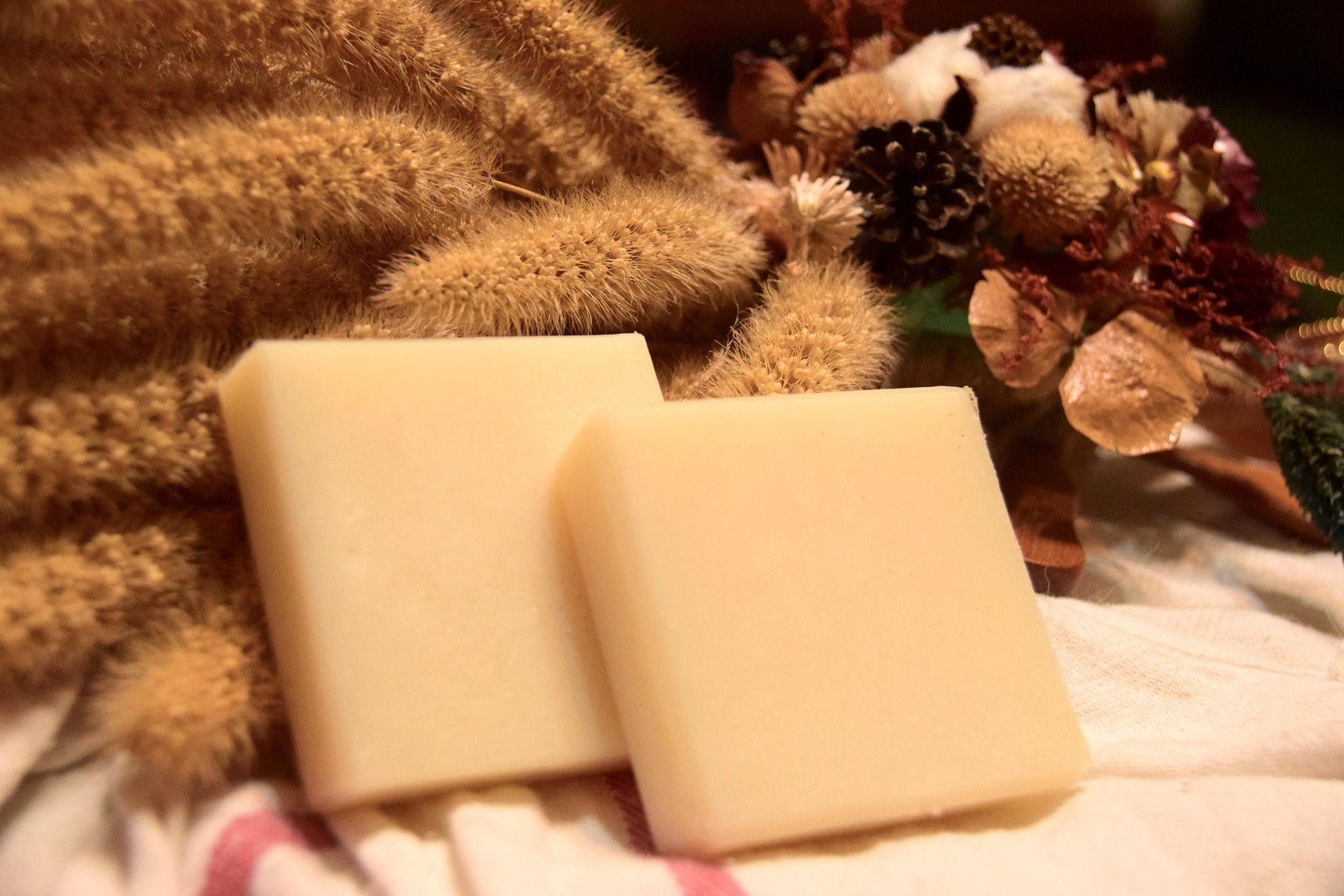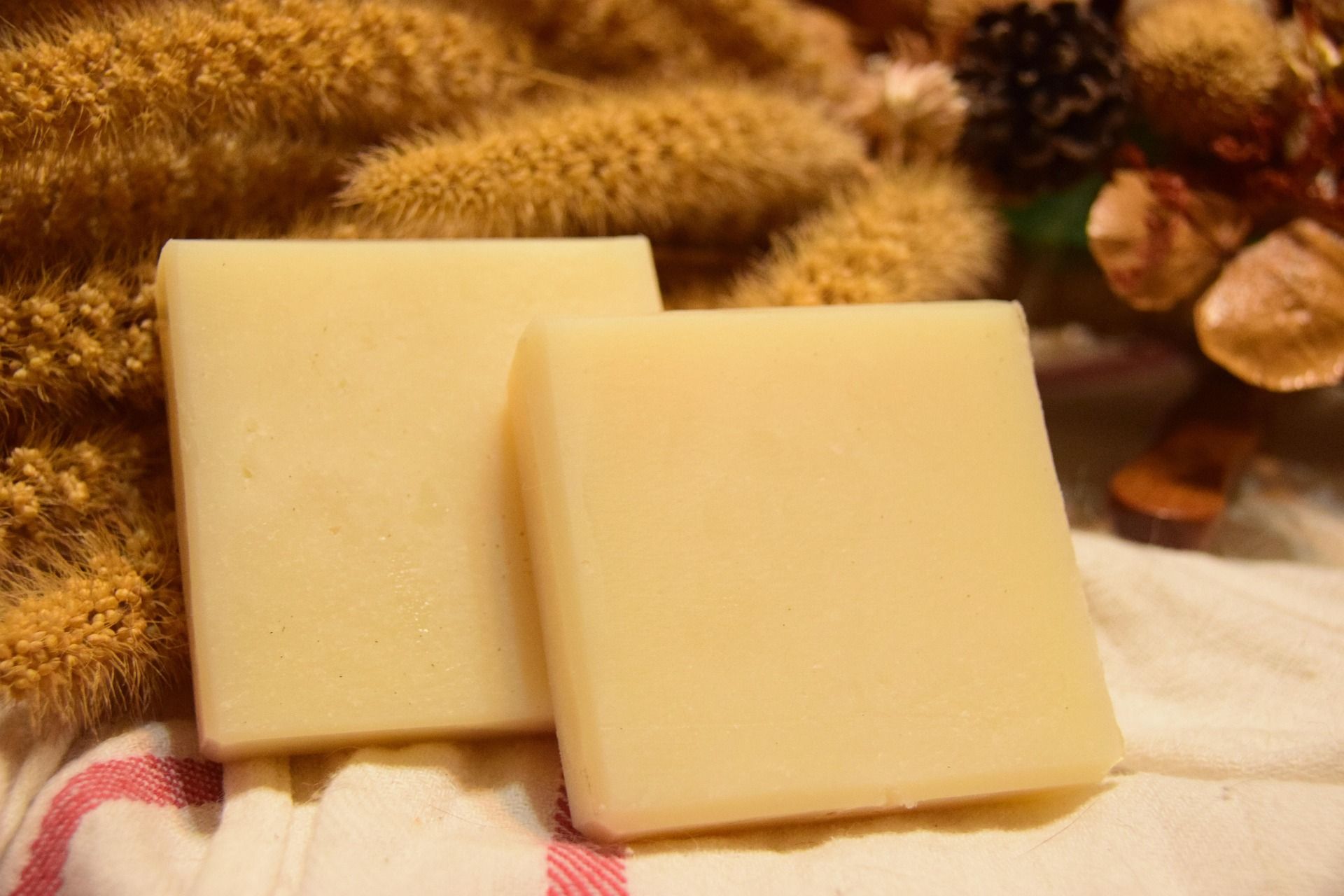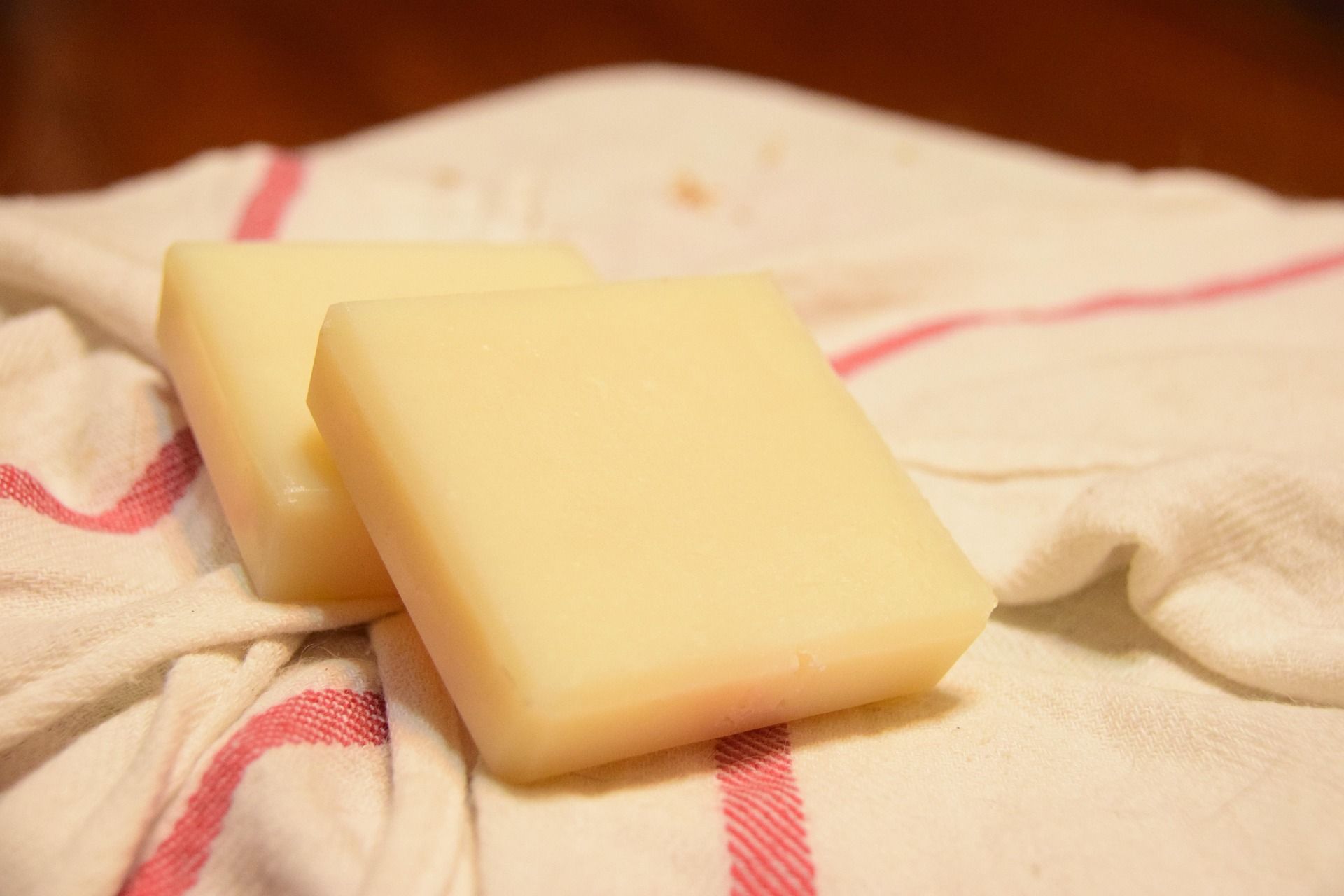You are not the only one with dry, tight skin in winter. A survey showed that 77% of Americans have dry skin as their main problem in cold months. Goat milk soap is special because it matches your skin’s pH. It helps keep moisture in and does not use harsh chemicals. The soap has gentle natural fats, vitamins, and calming ingredients. This makes it a good choice for people with sensitive or dry skin who need more care when it gets cold.
Key Takeaways
Goat milk soap helps dry winter skin stay soft. It matches your skin’s pH and gives natural fats and vitamins.
Cold air and heaters make skin dry. They break the skin barrier and take away moisture.
Wash gently with goat milk soap. Put on moisturizer right after to help your skin barrier.
Take short, cool showers. Use products without fragrance. Use a humidifier inside to stop skin from getting dry in winter.
Simple steps like using goat milk soap, moisturizing, and using sun protection keep your skin soft and healthy all winter.
Goat Milk Soap Benefits
Hydration
Winter can make your skin feel dry and rough. You need a cleanser that does more than just clean. Goat milk soap stands out because it hydrates while it washes. The secret is in the ingredients. Goat milk has lactic acid, which gently removes dead skin cells. This helps your skin soak up moisture better. You get a smoother, softer feel after every wash.
Tip: Lactic acid in goat milk soap works as a gentle exfoliant. It helps your skin hold onto water, so you stay hydrated longer.
The natural fats in goat milk help keep your skin’s moisture barrier strong. Unlike many soaps that leave your skin tight, goat milk soap leaves it feeling soft and comfortable. The Goat Milk Silk Soap also uses grape seed oil and sweet almond oil. These oils add even more hydration and nourishment. Sweet almond oil brings vitamin E and A, which protect and feed your skin. Grape seed oil is light but rich in antioxidants. It helps your skin stay healthy and smooth.
Here’s how some of these oils support your skin barrier:
Ingredient | What It Does for Your Skin |
|---|---|
Sweet Almond Oil | Soothes, softens, and protects with vitamins and healthy fats |
Grape Seed Oil | Hydrates lightly and fights damage with antioxidants |
Coconut Oil | Cleanses gently and locks in moisture |
Palm Oil | Helps the soap last longer and keeps your skin from drying out |
When you use goat milk soap, you give your skin a boost of hydration and protection. This is especially important in winter, when cold air and heaters can dry you out fast.
Gentle Cleansing
You want a cleanser that is kind to your skin, not one that strips it. Goat milk soap is gentle because it matches your skin’s natural pH. This means it cleans without causing irritation or dryness. The creamy lather from the Goat Milk Silk Soap feels soothing and soft.
Goat milk contains fatty acids and cholesterol. These help rebuild your skin’s natural barrier.
The soap acts as a humectant, drawing moisture into your skin cells.
Lactic acid gently exfoliates, but does not cause redness or stinging.
Vitamins like A, D, and E nourish your skin and help it heal.
The formula skips harsh chemicals, sulfates, and artificial fragrances.
Many people with sensitive skin notice fewer flare-ups when they switch to goat milk soap. It calms irritation and keeps your skin balanced. You can use it every day, even if your skin is dry, itchy, or prone to eczema. The natural oils and proteins in the Goat Milk Silk Soap work together to clean and comfort your skin.
Note: Goat milk soap is a smart choice if you want a cleanser that hydrates, soothes, and protects—especially during the winter months.
Winter Dryness
Causes
Have you ever wondered why your skin feels so dry and itchy in winter? You are not alone. Cold air outside and dry, heated air inside both play a big part. When you step outside, the cold air holds less moisture. This means your skin loses water faster. Dermatology research shows that low humidity and cold temperatures in winter make it harder for your skin to stay hydrated. Your skin can even start to crack or feel rough.
When you come back inside, things do not get much better. Indoor heating keeps you warm, but it also dries out the air. This dry air pulls even more moisture from your skin. Clinical studies show that heated indoor air causes your skin to lose water, making it feel tight and sensitive. If you wash your hands a lot or use harsh soaps, you might notice even more dryness. People who work in healthcare or wash their hands often can have extra trouble with dry, irritated skin in winter.
Tip: Try using a humidifier at home to add moisture to the air. This can help your skin feel less dry and tight.
Skin Barrier
Your skin has a natural shield called the skin barrier. This barrier keeps water in and blocks out things that can irritate your skin. The top layer, called the stratum corneum, is like a brick wall. The “bricks” are your skin cells, and the “mortar” is made of natural oils and fats.
In winter, cold and dry air can break down this barrier. When the barrier gets weak, water escapes more easily. Your skin feels dry, itchy, and sometimes even sore. Indoor heating makes this worse by pulling out even more moisture. If your skin barrier is damaged, you might notice more redness or even small cracks.
Keeping your skin barrier strong is key. Gentle cleansers, like goat milk soap, help protect your barrier. Moisturizers with ingredients like ceramides, fatty acids, and glycerin can help repair and strengthen it. These ingredients fill in the gaps and lock in moisture, so your skin stays soft and healthy—even when it is freezing outside.
Remember: A healthy skin barrier is your best defense against winter dryness. Treat it gently, and it will keep you comfortable all season long.
Skincare Routine
Morning Steps
Starting your day with the right skincare routine can make a big difference, especially when your skin feels dry and tight in winter. Here’s a simple morning routine that keeps your skin soft, hydrated, and protected:
Take a Short, Cool Shower
Keep your shower under 10 minutes and use lukewarm water. Hot water can strip away natural oils and make dryness worse.Cleanse Gently with Goat Milk Soap
Goat milk soap is perfect for your morning wash. It matches your skin’s pH and keeps your barrier strong. The creamy lather cleans without leaving your skin tight or itchy. Unlike many regular cleansers, goat milk soap hydrates and soothes with natural fats and vitamins.Moisturize Right Away
After you pat your skin dry, apply a rich cream or moisturizer. This locks in the moisture from your shower and helps repair your skin barrier.Apply Sunscreen
Even in winter, the sun’s rays can damage your skin. Use a broad-spectrum sunscreen with at least SPF 30 every morning.Drink Water
Hydration starts from the inside. Drink a glass of water with breakfast to help your skin stay healthy.Dress for Comfort
If you wear wool or rough fabrics, put a soft layer underneath to avoid irritation.
Tip: Goat milk soap does more than just clean. It hydrates, nourishes, and protects your skin, so you can skip harsh cleansers and start your day feeling comfortable.
Evening Steps
Your skin works hard to repair itself at night. A gentle, nourishing routine helps it recover from winter dryness and keeps it looking fresh.
Double Cleanse if Needed
If you wear makeup or sunscreen, start with a gentle oil-based cleanser or micellar water. Follow with goat milk soap to remove any leftover dirt and hydrate your skin.Exfoliate Gently (1-2 Times a Week)
Use a mild exfoliant like lactic acid to remove dead skin cells. Goat milk soap already contains lactic acid, so you get gentle exfoliation every time you wash.Apply a Hydrating Toner or Essence
Look for soothing ingredients like aloe vera or glycerin. These help your skin absorb the next steps better.Use a Hydrating Serum
Serums with ceramides, peptides, or hyaluronic acid add extra moisture and help repair your skin barrier.Moisturize Deeply
Choose a thick, nourishing cream or balm. Apply it while your skin is still slightly damp to lock in moisture.Add a Facial Oil or Sleeping Mask (Optional)
For extra hydration, use a plant-based oil or an overnight mask. This helps seal in all the goodness.Don’t Forget Your Lips
Use a thick lip balm with shea butter or vitamin E before bed.
Note: Gentle cleansers and rich moisturizers at night help your skin heal and stay soft. Goat milk soap is a great choice because it cleans and conditions at the same time.
Body Care
Winter air can dry out your whole body, not just your face. A few simple steps can keep your skin smooth and comfortable from head to toe.
Use Goat Milk Soap in the Shower
Goat milk soap is an all-natural cleanser with a creamy texture. It softens and gently exfoliates your skin without stripping away moisture. Unlike many body washes, it does not contain harsh chemicals or synthetic fragrances that can irritate or dry out your skin.Apply Thick Creams or Ointments After Bathing
Right after you towel off, use a thick cream or ointment. Look for ingredients like hyaluronic acid, ceramides, shea butter, or mineral oil. These trap moisture and help repair your skin barrier.Choose Gentle, Fragrance-Free Products
Avoid soaps and lotions with alcohol or strong scents. These can make dryness and irritation worse.Take Short, Cool Showers
Long, hot showers feel nice but can dry out your skin. Keep them short and use lukewarm water.Use a Humidifier Indoors
Adding moisture to the air helps prevent your skin from drying out, especially when the heat is on.Wear Sunscreen on Exposed Skin
Even in winter, UV rays can damage your skin. Use a moisturizing sunscreen on your hands, neck, and any other exposed areas.
Here’s a quick comparison of goat milk soap and regular body cleansers:
Feature | Goat Milk Soap | Regular Soap/Body Wash |
|---|---|---|
Moisturizing Ability | Hydrates and softens with natural fats | Often strips oils, causes dryness |
pH Balance | Matches skin’s pH, protects barrier | Higher pH, can disrupt skin balance |
Nutrient Content | Rich in vitamins and minerals | Usually lacks skin-nourishing nutrients |
Exfoliation | Gentle, with lactic acid | May be harsh or not exfoliate at all |
Chemicals | Free from harsh additives | May contain sulfates, parabens, etc. |
Callout: Goat milk soap is a gentle, nourishing choice for your whole body. It keeps your skin soft, smooth, and comfortable all winter long.
Goat Milk Soap Routine Tips

Maximizing Hydration
You want your skin to feel soft and healthy all winter. Here are some easy ways to get the most out of your goat milk soap routine:
Exfoliate gently with goat milk soap. The natural lactic acid helps remove dead skin cells, so your skin can soak up more moisture.
Try using a luffa with your soap once or twice a week for extra smoothness.
After you shower, pat your skin dry and apply a goat milk-based lotion while your skin is still damp. This locks in moisture and keeps your skin feeling fresh.
Focus on dry spots like elbows, knees, hands, and face. These areas need extra care in winter.
Layer your products. Start with a gentle cleanser, use a hydrating serum, and finish with a rich goat milk lotion or cream.
Use a humidifier in your bedroom or living room. This adds moisture to the air and helps your skin stay hydrated.
Avoid over-washing. Too much washing can strip away natural oils and make dryness worse.
Pick solid goat milk lotions if you want to skip harsh preservatives.
Tip: Reapply lotion during the day if your skin feels tight or itchy. Your skin will thank you!
Sensitive Skin Care
If you have sensitive skin, you need to be extra careful with your routine. Here are some steps to help you stay comfortable:
Do a patch test before using any new soap. Put a small amount on your wrist or inside your elbow and wait a day to see if your skin reacts.
Choose goat milk soap made for sensitive skin. Look for unscented or fragrance-free options.
Keep your routine simple. Use gentle cleansers and moisturizers without harsh chemicals or strong scents.
Moisturize right after washing. Solid goat milk lotions work well because they do not have chemical preservatives.
Try to avoid processed foods and drink plenty of water. Healthy habits help your skin from the inside out.
If you have a baby under one year old or a skin condition like eczema, talk to your doctor before using new products.
Note: Everyone’s skin is different. If you notice redness, itching, or burning, stop using the product and check with a dermatologist.
DIY Hydration Ideas
Face Mask
You can give your skin a boost at home with a simple goat milk face mask. This is a fun and easy way to add extra moisture, especially when your skin feels dry from the cold. Goat milk is packed with vitamins and natural fats that help your skin stay soft and smooth. It also has lactic acid, which gently removes dead skin cells and makes your face look brighter.
Here’s a quick recipe you can try:
Stir until you get a smooth paste.
Spread the mask on your clean face and leave it on for 10-15 minutes.
Rinse off with lukewarm water and pat your skin dry.
Tip: Honey and oatmeal soothe your skin and help lock in moisture. Goat milk adds gentle hydration and helps calm irritation.
People love goat milk face masks because they are gentle and work well for dry or sensitive skin. The fats and proteins in goat milk help replenish your skin, while the vitamins give your face a healthy glow. You get a mask that hydrates, soothes, and leaves your skin feeling soft—perfect for winter.
Bath Soak
A goat milk bath soak is another great way to treat your skin. When you add shredded goat milk soap to your bath, you create a creamy, milky soak that feels luxurious and soothing. This is especially helpful if you have dry patches or sensitive skin.
To make your own bath soak:
Fill your tub with warm water.
Add a handful of shredded goat milk soap and swirl until it dissolves.
Soak for 20-30 minutes and let your skin soak up the moisture.
Goat milk soap in your bath helps your skin hold onto water. The natural fats and vitamins A, D, and E repair and protect your skin barrier. Lactic acid gently exfoliates, making your skin feel smoother. Many people say their skin feels softer and less itchy after a goat milk bath. You might even find you need less lotion afterward!
Callout: Goat milk bath soaks are gentle enough for everyone—even babies and people with eczema. Try it when your skin needs extra comfort during winter.
You want soft, healthy skin all winter. Goat milk soap makes it easy. Here’s why so many people love it:
Stick with a gentle routine and you’ll notice less redness, fewer flare-ups, and smoother skin. Try Goat Milk Silk Soap and share your story. Embrace natural care—your skin will thank you! 🌿
FAQ
Is goat milk soap safe for sensitive skin?
Yes, you can use goat milk soap if you have sensitive skin. The gentle formula skips harsh chemicals. It soothes and hydrates, making it a great choice for people with eczema or irritation.
Can I use goat milk soap on my face every day?
You can use goat milk soap on your face daily. The creamy lather cleans without stripping your skin. It keeps your face soft and comfortable, even in cold weather.
Does goat milk soap help with itchy winter skin?
Goat milk soap helps calm itchy, dry skin. The natural fats and vitamins soothe irritation. You get relief from tightness and flakiness after each wash.
Will goat milk soap clog my pores?
No, goat milk soap will not clog your pores. The light oils, like grape seed and sweet almond, hydrate without leaving a heavy residue. Your skin feels clean and fresh.


